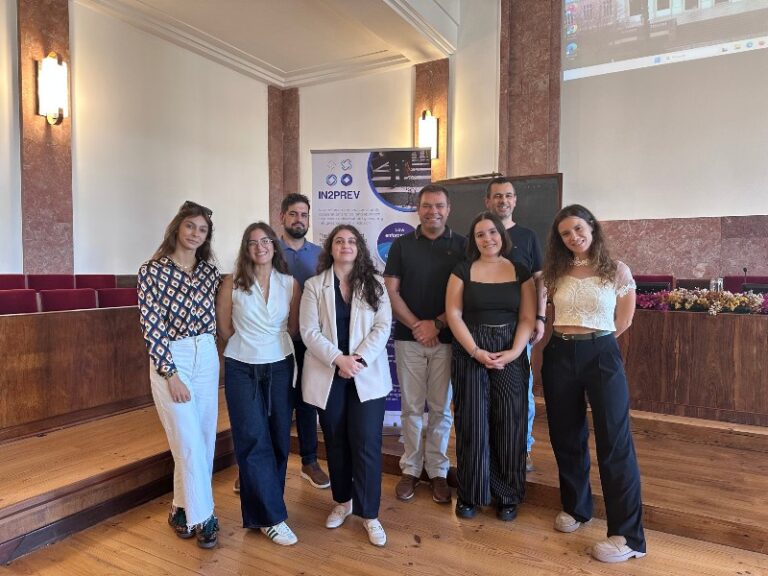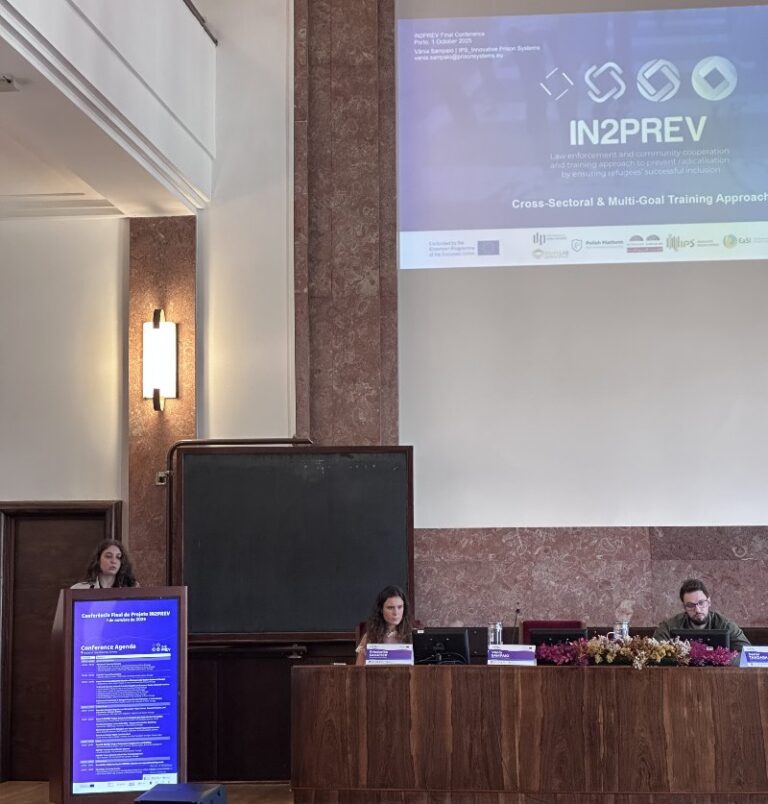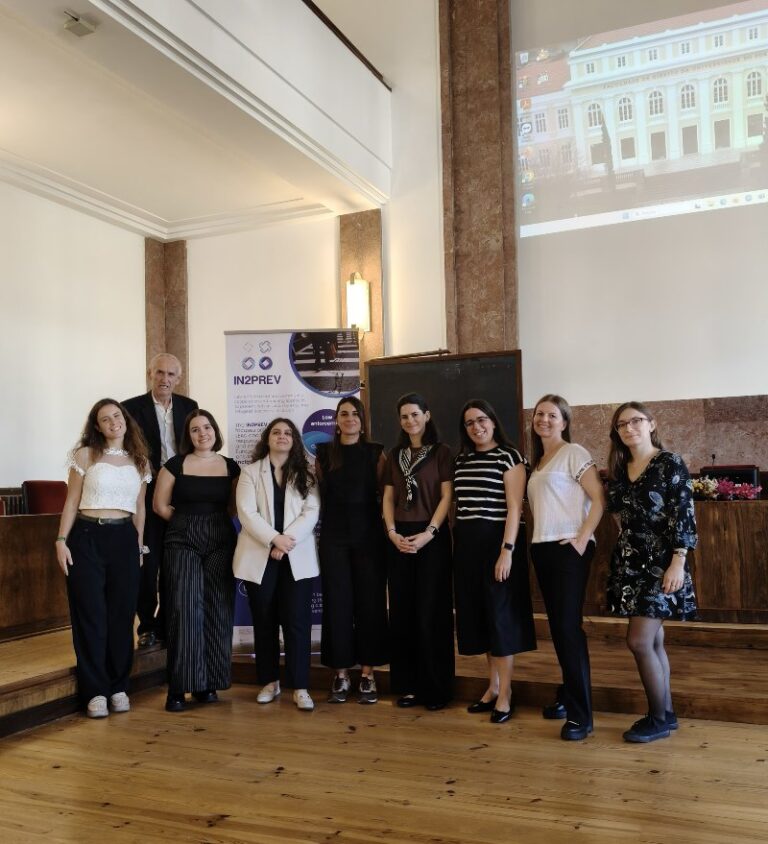The IPS-partnered initiative IN2PREV held its final conference last week, bringing together around 50 participants to discuss and advance the impact of this initiative dedicated to preventing radicalisation through the successful inclusion of refugees.
Held at the Faculty of Law, University of Porto, the event gathered experts and practitioners from across Europe to exchange experiences and insights on refugee integration, public policy coordination, and ethical approaches to reception and support. The programme featured panel discussions addressing relevant issues such as hate crime, radicalisation prevention, and professional practices in social inclusion.
A highlight of the conference was the presentation of IN2PREV’s key results. Among its major achievements, a European network has been established to strengthen cooperation between law enforcement agencies and NGOs, fostering knowledge exchange across borders. The FEVR-SES tool was showcased as an innovative instrument helping frontline professionals assess vulnerability to radicalisation in a structured way, while a mentoring programme is offering practical support and stability for refugees and asylum seekers in participating countries.
The project has also developed blended and online training opportunities to help professionals enhance their skills and share best practices within their organisations. The day concluded with a roundtable discussion on how these initiatives are shaping frontline practice and promoting cross-sector collaboration, featuring first-hand accounts of IN2PREV’s impact.


Throughout the conference, participants underscored the importance of collaboration among law enforcement, NGOs, academia, public authorities, and civil society in fostering refugee inclusion and preventing radicalisation.
IPS extends its sincere thanks to all those who attended and contributed to making this event a meaningful opportunity for shared learning and commitment.



Learn more about this project

IN2PREV
Law enforcement and community cooperation and training approach to prevent radicalisation by ensuring refugees’ successful inclusion
The IN2PREV project Consortium is coordinated by BSAFE LAB – University of Beira Interior (Portugal) and partnered by IPS_Innovative Prison Systems (Portugal), the Polish Platform for Homeland Security (Poland), the Euro-Arab Foundation for Higher Studies (Spain), the European Association for Social Innovation (Romania), the Academy of Police Force in Bratislava (Slovakia), the Center for Security Studies (Bosnia and Herzegovina), the General Police Inspectorate of the Ministry of Internal Affairs (Moldova), and the Bureau of Migration and Asylum (Moldova).
For more information on the IN2PREV project, please visit its website.
Related projects

R2COM
Radicalisation and violent extremism prevention in the community

REFUGIN
Communitarian approach for a holistic young refugee long-term integration

PARTES
Participatory Approaches to Protecting Places of Worship

SafeBorders
Strengthening Judicial expertise and Frontline support to combat Child Trafficking

KOBAN
Identifying future capabilities for Community Policing

DIGIDEM
Fostering Digital Democracy and Citizenship in Higher Education

WAYOUT
Integrated Exit Programme for Prisons and Probation

VicTory
Restorative and victim-centred approach to mitigate hate and (violent) extremism

R4JUST
Radicalisation Prevention Competences’ Development Programme for Justice Professionals

SHIELDed
Safeguarding symbolic places of personal and religious development and freedom in Europe through a multi-stakeholder approach.
Related news

Standing united against hate: A national effort to prevent and tackle hate crime and hate speech in Portugal
Read More »
New IPS-led initiative unites efforts to protect religious communities, schools, and places of worship
Read More »
IPS contributes to shaping EU’s future agenda on radicalisation prevention at Brussels Town Hall meeting
Read More »
Advancing rehabilitation and countering contemporary extremist threats: IPS at the EU Knowledge Hub on Prevention of Radicalisation Thematic Panels
Read More »



